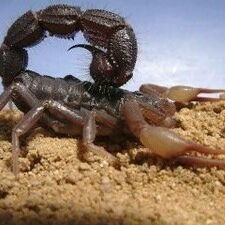-
Posts
323 -
Joined
-
Last visited
Content Type
Profiles
Forums
Events
Everything posted by SrSosio
-
Yes, I do have a Ryzen 9 5900X, so I guess RAM is fine. With dcs, I do have BSOD crashes quite often too, and according to the windows event manager seems to be some memmory dump issue. I think I'll first try getting a bigger ssd and running dcs from it and in the faster slot, but I still feel it's a waste having a gen4 ssd in a gen 3 slot, so I'll probably upgrade the mobo eventually as well
-
I've been reading a bit about my pc specs and I think I may have an issue with my mobo that could have been causing my crashes (both game and BSODs). Or several I should say: I have an MSI X470 gaming plus max 2 x 3200mhz 32Gb ram modules. Here comes the first issue. According to MSI's specs: 4 x DDR4 memory slots, support up to 64GB Supports DDR4 1866/ 2133/ 2400/ 2667 Mhz by JEDEC: so although the system recognizes the 64Gb and the BIOS allows me to run them at 3200mhz, I'm not sure if that's actually the case. 2 x M.2 ssd. I have a 500Gb in slot 1 and a 1Tb in slot 2. I don't remember the models, but I think both of them are PCIe 4.0, however, the mobo only has one PCIe 3.0 and one 2.0 slots (I just learned that). My logic when installing them was to have the smallest one in slot 1 for the operating system and other common software, and the largest for storage, which includes the installation of DCS. So it would appear to be that I've been running the game all these years in my slowest slot. So now I'm finding myself in the dilemma of fixing my system without breaking my bank account. I think that could be achieved by upgrading both my mobo and the ssd. But I don't want to make the same mistakes again, so here I come with what I think could work, so you can advise me: Gigabyte B550 Gaming X V2 (found it for 104€) A reliable brand of m.2 ssd, 2Tb like Samsung or Forgeon for about 120€ What do you think of the mobo choice? Any better suggestions?
-
I think all those files and folders actually are all in the Mods/aircraft folder, so it's actually not as messy as I thought
-
Looks like the Hercules is a pain in the ass to uninstall (the more reason to use a mod manager) as it affects a whole bunch of the folders in the saved games folder: I'm thinking it would probably be easier to just delete the saved games folder and reinstall it (opening the game will create it again, right?) but I don't want to lose all my bindings, and SRS setup (you told me SRS didn't need to be uninstalled). So what should I keep to copy again after that? I'm thinking about folders Input, Missions, Liveries, Input, MonitorSetup... Or maybe I should just ignore those and just delete the Mods/aircraft/Hercules ver 6.8.2 folder? Edit: ah! also a quick question. I installed OVGME. Enable and disable mods works live or do I need to restart the game each time I enable/disable them?
-
Please, don't get mad. I do appreciate you all's help. I'll install OVGME and disable the mods and test it again.
-
I've heard about mod managers, but never used one. Which one would you recommend? It is indeed a pain sometimes, specially to uninstall, as some mods have multiple files across multiple folders (like twitch2dcs, which I already uninstalled)
-
Hey. I left the message and went to sleep. I have used the log analyzer multiple times before. I just don't find any of its advices useful to me. I've done everything it says with no luck before. I do use msi afterburner to undervolt/underclock my gpu, which I learnt it does come oc'd by default (evga 3090 ftw3 ultra). I've also tried running the single core version (not sure why that is a recommendation). I think the gpu is likely the problem. I bought it used and the guy had re-padded it. Not sure if he did a good job with it. I gotta say everything else in the pc works perfectly fine, fusion 360, horizon forbidden west... Even DCS when I play it in a simple 1920x1080 23" inch lcd with keyboard and mouse or game controller. I'll try once again but with trackir instead of vr, and disabling hot plug. Regarding hot plug, if I disable it and want to add a device that was disconnected, I just need to rescan devices, right? Edit: I'd rather keep trying without uninstalling the herc and the blackhawk, as I play almost exclusively in Grayflag server and those are required. It's quite annoying having to uninstall and install them again. But I'll try it if nothing else works.
-
I really thought I had it, and I still think I can do it. This time I got the farthest ever. It still sucks to report that my game crashed 2NM out of touchdown. Pretty sure it has nothing to do with the mission though, my game crashes more frequently than usual. PFA the log, and here's the track in my drive: https://drive.google.com/file/d/1VnhWzoHX0G7ti28k4FIZnhpvDPDJ6dht/view?usp=sharing dcs.log-20251004-194741.zip
-
I think I may have found the culprit. I still need to test it, but I believe it could be a cheap USB cable that I used for the Throttle unit. Looks like it was disconnecting and causing issues with the hot plug. Again, this is just a guess, but I've bought a better quality one that arrives today and I'll test the mission again with it.
-
Just the herc and the blackhawk, and twitch2dcs, nothing too fancy
-
Hi everybody. Has anybody else experienced crashes in mission 2? I've played it like 5 or 6 times and have not been able to finish it yet. It always crashes quite into the mission, shortly after the AP training and after turning towards WP3. It may be just my computer, which does funny things in DCS and crashes it rather often, but I just had a long play in the apache with no issues. I don't have the log at the moment, but I'll try the mission one more time and upload the track and the error logs.
-

TDC Slew disabled for the Winwing Throttle
SrSosio replied to SrSosio's topic in Controller Questions and Bugs
Oh wow! I don't know how could I miss that. Thanks! I'm blind I guess -
Hi, I don't know if you can see it in the screenshot below, but the TDC slew is disabled for the Winwing Orion Throttle. Why is that?
-
You can't. It's hard to see, but in my screenshot you can see that that option is disabled for APU OFF: I think that's only the case for the specific TM WH HOTAS. If you use a different one, you should be able to edit those. But anyway, I went all-in and completely gutted the electronics of the throttles, so I'll make it a DIY HID device with an Arduino Pro Micro. I've already sorted out the most complicated part which is reading the throttles, the rest are all buttons and switches and a couple of analog axis. Easy peasy Edit: confirmed, I plugged in my Winwing Orion throttle and you can edit those. It's just the Thrustmaster Warthog that doesn't allow you to do that.
-
Yes, I got mine used too, and I've already heavily modified it. I removed the USB cables and replaced them with female USB ports, so I could just unplug them from the front and remove them, like the Winwing ones. I replaced the pinky switch, the china switch the Slew cursor and the AP grip button, and I think I need to replace the brake and the autopilot switches as I think they are starting to fail.
-
I don't think doing it slowly will make a difference. Latching switches have that phenomenon where nothing is happening, then at some point you apply enough force that it latches into the new position immediately. I don't remember it, but it has a name. I don't know, it may as well just be a faulty one. I'm tempted to gut it and replace all the electronics with my own. I'm already familiar with DIY gaming devices, so it shouldn't be too dificult.
-
Since this adaptor has been EOL for the longest time, I had to design and manufacture in aluminium (JLCPCB) the bracket and "build" the wire myself. I've been using it since last night with no issues, so it works perfectly fine, I've just decided to sell my TM joystic and buy the WW F16 grip instead. Selling it for 40€ plus shipping (from Spain)
- 1 reply
-
- 1
-

-
Thank you @MAXsenna. I do have the option enabled: But I'm still facing missing readouts that make me have to go back and forth the switch to read the actual position. Specially annoying with the flaps and the airbrakes.
-
But there isn't that option in the warthog. For instance, the APU separate options for Off and Start are disabled, and you are left only with the option OFF <> Start (Off else Start). Moreover, there's not even an Idle option for the throttles:
-
Hey there. This is probably a known thing and easy fix, but I've noticed that the TM warthog throttle sometimes require double input in order to register a click. What I mean by this is for example to turn off the APU switch, I have to turn it off, then on again and off one more time so the game registers it. Or move the throttle to idle, back to off and back to idle to register the idle position. Do you know why is that and how to fix it? Thanks
-
Hey. I'm glad you liked it. Regarding the code, it's actually the last video on my YouTube series that I've been procrastinating to record for months now. If you build it using the sketch (you can build it with shift registers instead of port expanders, and in that case you can use MMjoy2 instead of an arduino sketch), you'll have to make some adjustments to it. The 99 is because when I wrote it, I wasn't using all the pins of the expanders, therefore I used 99 for the unused ones.
-
I have BORT installed for DCS-BIOS and it was working fine, but for some reason it's not finding the json files, even though they are there. Not sure if any of the latest patches broke anything about it:
-
I did it, as LucShep suggested. I also think there's a feature in the latest msi afterburner version that allows launching it at startup and I think I enabled it. That would explain it working even without me having to manually launch it every time.
-
I would 100% swap the grip for realism, as well as use an extension rod. I'm sure you can find somewhere else to put the additional binds Is that the winwing mip?
-
That should fit in a K1. Would you be willing to share the file? What program did you use?









